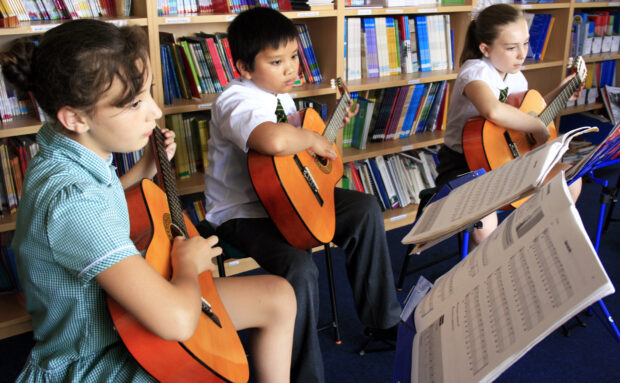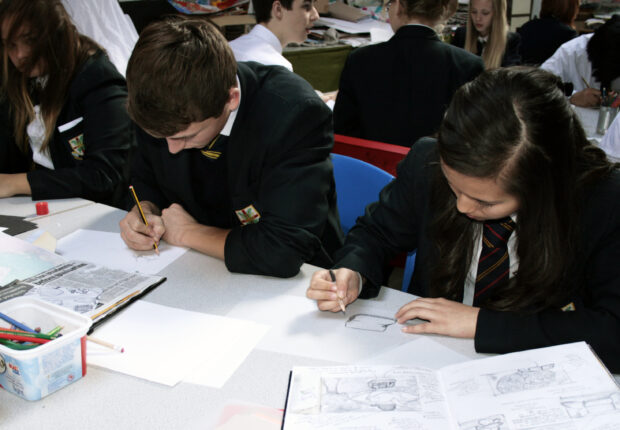It’s really helpful for us to hear your views – at events, like the DfE’s Workload meeting I attended last week, via Twitter or when out and about in schools. Recently I’ve heard the same question about school performance and our inspections from a number of different people, as well as queries about the complaint process.
Bluntly, if you come away from your inspection believing that Ofsted is only interested in data, then something has gone wrong. Our inspectors look at many different areas of a school’s work, but most importantly whether the quality of education is good and the pupils prepared well for their next stage of education, training or employment.
We know, for example, that some schools are curtailing key stage 3 and making pupils choose their options early, often dropping subjects in order to focus on preparing for GCSE exams. Of course, results are important – to the pupil, to their parents and to the school. But extended jumping through assessment objective hoops can only be a slog for pupils and teachers. Education should be about inspiring an enjoyment of learning that will last a lifetime.
It’s been said that the performance of the school, in terms of exam and test results, will predict its Ofsted rating. That can’t be true in a broadly norm-referenced test/exam system – if it were, 90% of schools wouldn’t be good or outstanding. We consider how well schools reflect and act on their strengths and weaknesses. We directly observe what’s going on in classrooms.

We ask pupils, and parents, what they think about their school. We look at the website. We talk about the school with the head, senior leaders and staff. Yes, we consider the data – but it never tells the whole story. We look at the culture of the school and how it makes an impact on the pupils’ development and learning.
If, during your inspection, you believe that it’s not being carried out properly and in line with the handbook, it’s best to raise the issue with the lead inspector as soon as possible. It’s not a good idea to just leave issues to fester if you feel that the inspection team is working without all the facts, is focusing on one aspect of your school that you believe is being given too much weight, or is asking for documents and information in a way that the handbook says we don’t need.
I want to stress that the vast majority of our inspections run smoothly and without any problems. If you do raise a concern, the inspectors should record it and any evidence and actions taken. Discussions while our inspectors are still on site are much the best way to get things ironed out.
I know that inspections are busy and leaders are trying to focus on lots of different aspects of their school – but try not to let this opportunity go by. It’s much better to have an honest discussion about something than try to return to it later.

The lead inspector should make sure that the leadership team understand how to make a formal complaint if that’s necessary. This process needs to be set in train by submitting the complaint no more than ten days after the report is published. We don’t normally delay publication of the report, so it’s important that we hear from you in good time. Schools also have a chance to comment on the factual accuracy of the report before it’s published. There’s lots of information about the full process available.
The key issue, in my opinion, is if you believe that inspectors aren’t getting a true and complete picture of the school during inspection, it is vital that you raise this at the time. Our interrogation of the data informs us of one part of the impact that your teaching is having on children’s lives. Your inspection is your opportunity to show us the rest and for us to get the rounded picture of your school.
Please email us with any comments, queries or idea for future blogs. You can keep up-to-date with Ofsted news by signing up for email alerts. You can also follow Ofsted on Twitter.
2 comments
Comment by Michael Newman posted on
This is why Summerhill School had to go to court to settle the issue of an appalling inspection in 1999 by senior HMI members. The school won its court case, and even had the Ofsted Adjudicator agreeing with many of its points of criticism of the inspection. Despite this, and continuous lobbying of the Chief Inspector and their meetings with the Select Committee of Education, Ofsted did not learn or change, as Helen Jones MP, member of the Select Committee, expressed shock at in response to an answer to her question in 2004:
"Q46 Helen Jones: I am not asking you about the complaints process, I am asking what Ofsted has in place internally in order to enable it to learn from complaints.
"David Bell…
"Helen Jones: I am shocked!"
The Court Case agreement meant that Summerhill was the only school in the country to have a DfE observer (including Prof Geoff Whitty, who later became a member of Ofsted management committee), and two of its own observers, Prof Ian Stronach (member of the Education Research Council) and Dane Goodsman (lecturer in management within NHS) watching, commenting and inputting into the school's Ofsted inspections. As a result issues within the inspection were resolved, as they arose, through discussion, knowledge, understanding and respect. The school and its children lobbied the Select Committee that all schools should have access to such a system. But instead, under Michael Wilshaw, Ofsted and DfE, tore up the court agreement as they said it was no longer needed, as Ofsted now understood the school. The school defended the agreement, but in the end had to move to the Independent School Inspection system, so that Ofsted, with its agenda on 'leadership' and 'exams, exams, exams' could not threaten us again.
Ofsted consistently and publicly have refused to learn from their errors, even when they are demonstrated through a court case, independent adjudicator report, independent inspection reports, continuous questioning from the Select Committee.
If you want to see inspection reports that understand and respect the school all you have to do is read those by the Independent inspectors!
So Ofsted does not learn when it bullies and threatens a school with closure because of a political agenda of results and National Curriculum levels. And it is proud, in its communication to the Select Committee, of this failure to learn.
Will its blog allow for a debate referring to this evidence and history... I sincerely doubt it.
For evidence of this just read the reports of the Select Committee on Summerhill. You can learn more at https://www.facebook.com/ofstedaccountable/
Comment by Kelly Cross posted on
Except in some cases the views of the school and the parents are completely ignored and decisions made on academisation based on incorrect information.
We, the parents at Waltham Holy Cross Primary School, are in such a situation and simply cannot get our voices heard. We are worrying for our children and what the future holds for our lovely school.